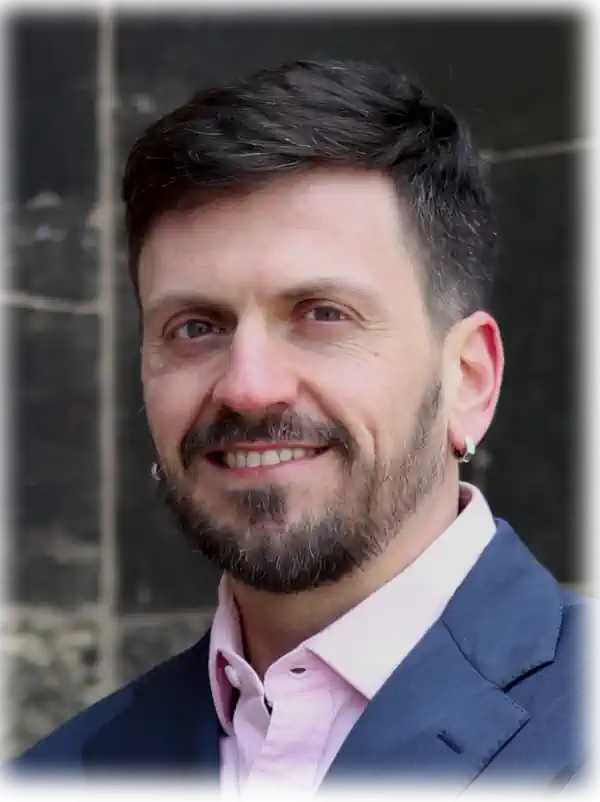

Life is full of contradictions. In addition to moments of joy and happiness, it often presents us with challenges, whether external, related to our relationships, work, and daily life, or internal, as we confront our own feelings, fears, and insecurities. Sometimes it can be difficult to face these challenges and find meaningful ways to deal with them.
In individual psychotherapy, we do not aim to avoid all difficulties, but rather to understand them better and learn to cope with them. Together we look for ways to develop self-awareness, gain greater peace of mind and find answers that help us to better navigate the world around us and our inner world.
Depression, anxiety and burnout are not just psychological disorders. They are also the voices and signals of our deeper self trying to tell us something. They are defense mechanisms that have arisen in response to some of the life situations we have faced. Rather than ignoring or suppressing these signals, psychotherapy offers us a means to a deeper understanding of what our soul is trying to tell us. Through this deeper understanding and connection with ourselves, we can find an authentic source of inner contentment and peace. For more, see the frequent topics section.

We use a variety of methods in therapy, but always with your current feelings and needs in mind. It is important that the pace and progression of therapy is what works best for you at that time. The priority is not to stick rigidly to one method, but to always respect and listen to what you need.
Ing. B.Sc.(Hons.) Zdeněk Nový – psychoterapeut
In my therapeutic work I integrate various methods in which the connection between mind, emotions and body plays a key role. I strive for harmony between the structured practices of different therapeutic orientations, including psychoanalytic methods, biosynthesis and other body-centered techniques. My approach reflects, among other things, a five-year accredited training under the Association for Body-Centered Psychotherapy.
I offer a safe space for finding and knowing yourself and fulfilling your purpose in life.
In the process of psychotherapy, you will gradually acquire skills that you can incorporate into your daily life. In doing so, you become your own guide and support in personal growth.
Learn more about pricing and rules.

Sometimes problems won’t go away without help. While medications and diagnoses are sometimes appropriate, they are not always the only or best way.
I have therapeutic and personal experience with human hardship. I offer a sensitive guide through the paths of the soul without judgments, criticisms or labels. My story can be found in the about me section.
Zdeněk Nový
Frequently asked questions about psychotherapy
What are the differences between psychotherapy, psychiatry, counselling and coaching?
If you are in need of psychotherapy, our shared goal is to provide you with the best possible care that meets your unique needs and goals. I do not aim to adhere rigidly to any one therapeutic direction or method.
Instead, I combine proven methods of psychological counseling, coaching, depth psychology, and body psychotherapy to create a comprehensive and individualized therapeutic approach.
I understand that some people seek specific advice and solutions to real-life problems, while others want to delve deeper into their emotional and psychological dynamics. Using a combination of methods from counseling, coaching and psychotherapy, we are flexible in tailoring an approach that respects and meets the specifics of each individual.
Our goal is to create an environment where you feel supported, heard and respected, and where you can achieve your therapeutic goals, whatever they may be.
I do not offer psychiatric help. I will encourage you to seek psychiatric help if needed and can also recommend specific psychiatric care. You can find professionals I have recommended in the contact section.
Psychotherapy
- Definition: Psychotherapy is a therapeutic direction that focuses on an in-depth exploration of a client’s thought patterns, emotions, and unconscious conflicts.
- Methods: The psychotherapist uses various techniques of guiding the client in conversation, relaxation, and imagery to explore unconscious processes and patterns that may be influencing behavior and emotional state.
- Education: Psychotherapists have a degree in psychology or a related field and training, usually lasting several years, in which the psychotherapist learns techniques for working with clients and themselves.
- Focus: Emphasis is on deepening self-knowledge, uncovering deeper psychological dynamics and addressing long-standing issues.
Psychiatric assistance
- Definition: psychiatry is a medical discipline that focuses on the diagnosis, treatment, and prevention of mental disorders.
- Methods: Psychiatrists are doctors who can prescribe medications, perform physical examinations, and recommend hospitalization when necessary.
- Education: psychiatrists graduate from medical school and subsequently specialise in psychiatry.
- Focus: In addition to therapy, they focus on the biological aspects of mental disorders and neuroscience research.
Psychotherapy is different from psychiatric care. In psychotherapy, we treat the human soul with words, the therapeutic environment, the therapeutic relationship, and various techniques of therapeutic direction. Psychiatry is more concerned with healing through psychopharmaceuticals. When necessary, psychiatry and psychotherapy can complement each other. The psychiatrist and psychotherapist should be mutually informed by the client about the combination of treatments.
Psychological counselling
- Definition: psychological counselling is a form of professional help aimed at solving specific life problems, decision-making and stress management.
- Methods: Counsellors use a variety of tools and techniques to help individuals better understand their situations and develop strategies for dealing with problems and major life decisions.
- Focus: Counselling is often short-term, focused on specific problems or situations, and offers practical solutions.
- Duration: psychological counselling can be short or medium term, depending on the specifics of the problem.
Coaching
- Definition: Coaching is a process in which a professional supports a client in achieving specific personal or professional goals by providing feedback, strategies and various tools.
- Methods: Coaches use a variety of tools and techniques to help clients improve their skills, modify habits, and set and achieve goals.
- Focus: Coaching focuses on the future and creating action plans to achieve specific goals. It is not primarily focused on addressing mental health difficulties, disorders or trauma.
- Duration: Coaching is often short-term and targeted to specific problems or goals.
What is the first session in psychotherapy like?
During our first meeting I will introduce you to my way of working. I will listen carefully to your story and the theme you bring to therapy. We will look together to see if this is a topic I can be of help with. At the same time, we will feel if we are a “good fit” and if you can benefit from my assistance on your journey. If so, we will arrange a few follow-up meeting dates, after which we will again review whether the meetings are beneficial to you.
Even at the first meeting it is possible to treat your current condition if the situation requires it.
When should I consider psychotherapy?
Consider psychotherapy whenever you are feeling overwhelmed, lost or struggling with mental health issues. Some difficulties you may have already resolved in your own life, while others have been helped by loved ones. For others, there is psychotherapy. Psychotherapy can be appropriate for individuals with a variety of issues, including anxiety, depression, trauma, family or relationship problems, and much more. At the same time, psychotherapy is appropriate for those of us who seek personal growth. Psychotherapy provides a valuable mirror of our inner world.
How long does psychotherapy last?
The length of psychotherapy can vary greatly and depends on the specific needs and goals of each of us. Some people may benefit from psychotherapy for a few weeks or months, while others may seek longer-term therapeutic help or guidance. Most often, psychotherapy tends to be a long-term process taking place over a period of months.
What is the goal of psychotherapy?
The goal of psychotherapy is to help individuals achieve better mental well-being and quality of life. This is achieved through developing self-awareness, improving communication skills, managing stress and learning ways to constructively resolve problems and conflicts.
Is psychotherapy confidential?
Yes, psychotherapy is based on the principle of confidentiality. Therapists are ethically bound to protect your privacy and not to disclose information about your treatment without your consent. Safety is one of the key elements in psychotherapy.
How often does one go to psychotherapy?
The usual frequency of meetings is 2 to 4 times a month depending on our capabilities. However, if the situation does not allow otherwise, we can meet once a month.
How long is a psychotherapy session?
The usual length of a psychotherapy session is 50 minutes. As a psychotherapist, I am responsible for keeping to the end time of the session. Sometimes it is possible to agree on a minimum length for an open-ended session. This means that the end time of the session is controlled by the process currently underway.
Is it normal to have emotional or physical reactions after a session?
Yes, there can be emotional and physical symptoms in psychotherapy, which is the body’s natural response to the healing process. In and after therapy, there are both relieving and challenging experiences. All are part of the healing process.
Is there anything specific I need to do or have before starting therapy?
Before therapy begins, it is good to be open to the process and willing to explore your experience and the connection between body, emotions and mind. Your active participation is crucial to the success of psychotherapy.
Is psychotherapy safe for everyone?
Yes, psychotherapy is generally considered safe. However, as with any form of help, it is important that we consult your specific needs.
Can medication replace psychotherapy?
Medication can be a useful adjunct to psychotherapy, especially for some mental illnesses. I am not against medication, but in the case of medication it should be seen more as a crutch to allow one to regain strength for inner work. It is important to consult a doctor and a psychotherapist for your particular situation.
How does psychotherapy treat anxiety?
Psychotherapy can help individuals with anxiety through a range of techniques and approaches that focus on identifying and addressing the underlying causes of anxiety, developing coping skills and supporting them in building a healthier relationship with themselves.
What problems can I bring to psychotherapy?
It is possible to bring any topic that is bothering you into psychotherapy. Psychotherapy is a place of acceptance. There are topics that come up most often in sessions. I have listed them in the frequent topics section.
Veletržní 67, Prague 7 – Letná
Tram station: Kamenická
Parking: Centrum Stromovka (1h free)

